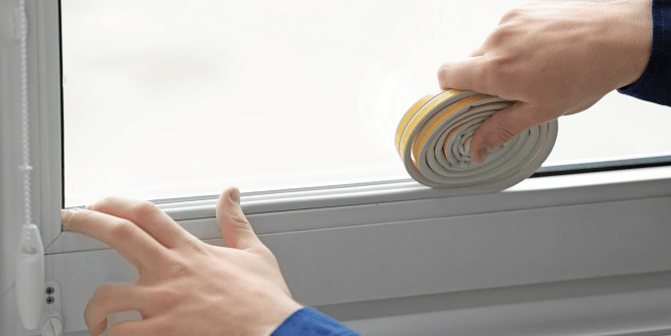As more states and cities set aggressive policies toward a carbon-free future, the energy industry is abuzz with the concept of electrification. What does this have to do with energy efficiency? A lot! Although some people may assume that efficiency’s reduction in electric use conflicts with electrification’s increase in load, in fact, energy efficiency is central to many electrification strategies. Like many relationships, it’s complicated. If done right, electrification presents opportunities to advance energy efficiency and its many benefits. But if not done carefully, it also poses challenges. Here we briefly explore the relationship between electrification and efficiency and highlight some upcoming ACEEE research and outreach that will further explore the topic.
Read More (ACEEE)
If roads, bridges, and phone and transmission lines are the veins of American infrastructure, buildings are the heart. Whether residential or commercially owned, the buildings that serve as places of work and living in the United States unquestionably shape public health, safety, and economic productivity. As buildings’ multiplying energy needs increasingly force their integration into the United States’ energy grid, it has become necessary to update building practices and technologies accordingly. These updates should minimize energy leakage and make greater use of each unit of energy consumed.
By upgrading energy efficiency in buildings, the United States can realistically lower energy costs for consumers, encourage job growth, and reduce energy-related pollution and carbon emissions. Buildings present a vast opportunity for Congress to revitalize the core of U.S. infrastructure and improve communities across the country.
Read More (American Progress)
If roads, bridges, and phone and transmission lines are the veins of American infrastructure, buildings are the heart. Whether residential or commercially owned, the buildings that serve as places of work and living in the United States unquestionably shape public health, safety, and economic productivity. As buildings’ multiplying energy needs increasingly force their integration into the United States’ energy grid, it has become necessary to update building practices and technologies accordingly. These updates should minimize energy leakage and make greater use of each unit of energy consumed.
By upgrading energy efficiency in buildings, the United States can realistically lower energy costs for consumers, encourage job growth, and reduce energy-related pollution and carbon emissions. Buildings present a vast opportunity for Congress to revitalize the core of U.S. infrastructure and improve communities across the country.
Read More (Center for American Progress)
The Building Technologies Office announced it is investing up to $19.5 million in 19 projects that will drive innovation in early-stage research and development for advanced building technologies and systems that will serve as a foundation for future technological developments and reductions in building energy consumption. These technologies will improve the efficiency of our nation’s buildings and will help American consumers and businesses save energy and money on their utility bills.
“Technological innovations enable energy-efficiency advances in the buildings sector, providing a tremendous opportunity to reduce energy waste and costs – boosting the competitiveness of U.S. companies and easing energy bills for American families,” said David Nemtzow, director of the Building Technologies Office. “As buildings account for 40% of the energy consumption in the United States, these efficiency innovations allow us to further improve upon past progress.”
Read More (Energy.gov)
ROANOKE, Va. (WFXR News) – For 2019, Appalachian Power has several new programs to provide residential and business customers a chance to save money, energy, and make their homes and businesses more energy efficient.
“We’re excited to bring new options that will bring more energy savings to our customers,” said Don Nichols, manager of Appalachian Power’s TakeCharge energy efficiency programs in Virginia.
Read More (Virginia First)
ACEEE hopes your holidays were warm and bright—but let’s be real, for those in colder climates, the first months of the new year can be notoriously chilly. Plus, the great weakening of the Polar Vortex(link is external)means cold air will likely stick around.
So let’s talk about heating. Heating your home is an incredibly energy consuming task, and typically makes up around 35%-50% of your utility bill. Fortunately, there’s a lot that you can to do save energy and money while maximizing coziness. From five-minute fixes to easy DIY projects, here’s a list of ways to stay a little warmer and save some money as you begin the new year.
Read more (ACEEE)
(Washington, DC) – U.S. Senators Jeanne Shaheen (D-NH), Susan Collins (R-ME), Chris Coons (D-DE) and Jack Reed (D-RI) reintroduced bipartisan legislation to encourage state-driven energy efficiency and renewable energy initiatives that reduce energy costs for low-income households, spur private sector energy innovation and improve emergency planning and response. The Investing in State Energy Act would prevent undue delay in distributing grants through the Weatherization Assistance Program (WAP) and the State Energy Program (SEP) to state agencies and local partners that implement energy initiatives.
Just last month, Shaheen led a bipartisan letter with Senators Collins, Coons, Reed, Murkowski and Cantwell to Secretary of Energy Rick Perry regarding delayed guidance and documentation for the WAP. Their letter was in response to the Department of Energy (DOE) missing an important deadline to deliver information concerning state allocations to WAP grantees. Because of the Senators’ efforts, this guidance was later released to allow states to plan for the upcoming year.
Read More (Shaheen Senate)
An EPFL researcher has developed a system based on fuel cells to reduce the carbon footprint and energy consumption of cruise ships, which are increasingly popular among vacation goers around the world.
Spending a few weeks sailing the seas on a luxury liner is an idea that appeals to a growing number of people, particularly in Asian countries. But cruise ships do not just sail from port to port: as veritable floating hotels accommodating several hundred passengers, they use a great deal of energy for heating, electricity, air conditioning and various other aspects of life on board. To make them more environmentally friendly, Francesco Baldi, a researcher in EPFL’s Industrial Process and Energy Systems Engineering Group (IPESE), has come up with a novel solution.
Read More (Phys)
World-famous organizing expert Marie Kondo and her new Netflix show “Tidying Up” have inspired many to declutter their homes and lives. But tidying up doesn’t just apply to your clothes and belongings. While Kondo provides advice on straightening out your room, here are some tips on how to tidy up your energy use:
- Change out your lightbulbs. LED lights use at least 75 percent less energy than incandescent bulbs, and last 25 times longer! If you’ve still got incandescent bulbs in your home, it’s time to do as Marie would: thank them for their service and let them go.
Read More (ASE)
Launched in 2004, Great Energy Efficiency Day (GEED) has become a “must attend” public discussion on the need for, and benefits of, energy efficiency. Each year the event draws stakeholders from business, industry, government and academia to offer their unique industry perspectives.
Directly following GEED, they’ll host the Unsung Hero Awards Reception where they’ll honor the public servants working hard behind the scenes to advance energy efficiency. Stay tuned for more information and a full agenda. Contact MaryAnne Tatum for any questions.
Read More (ASE)


